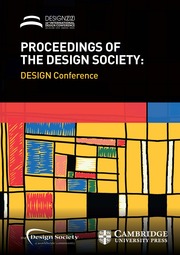Crossref Citations
This article has been cited by the following publications. This list is generated based on data provided by Crossref.
Titova, Olena
Ishchenko, Tetiana
Yershova, Liudmyla
Bazyl, Ljudmila
and
Kruchek, Viktoria
2023.
Advances in Design, Simulation and Manufacturing VI.
p.
400.
Thepkaew, Jarupuk
Lertthahan, Panisa
and
Nithichaiyo, Ekawat
2024.
Promoting Entrepreneurial Mindset of Undergraduate Students by using Design Thinking with Cooperative Learning.
p.
1.
Korkmaz, H. Ufuk
2024.
Girişimci Kavramı ile İlişkili Lisansüstü Doktora Tezlerinin Analizi.
Aksaray Üniversitesi İktisadi ve İdari Bilimler Fakültesi Dergisi,
Vol. 16,
Issue. 2,
p.
77.


